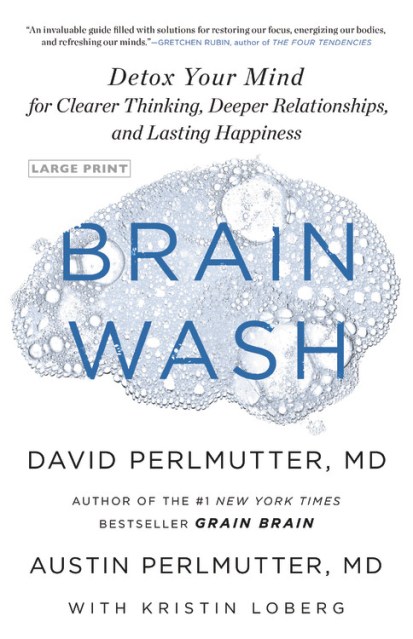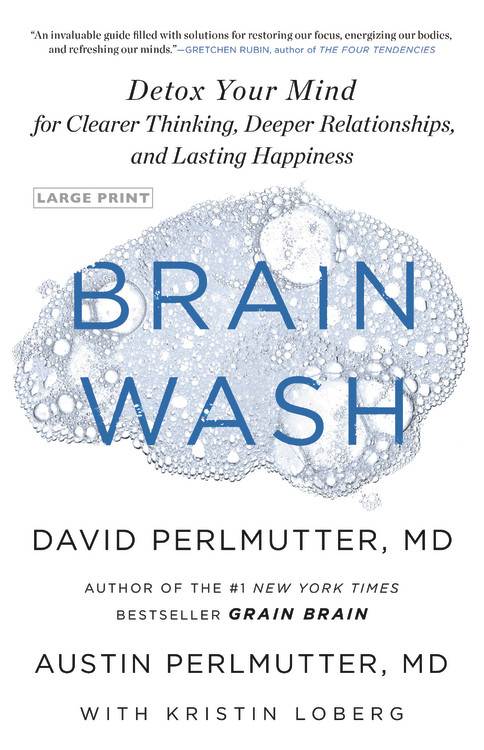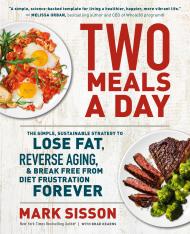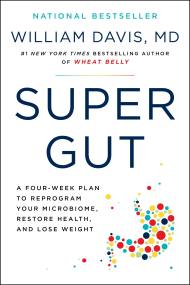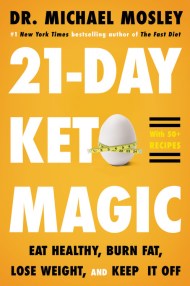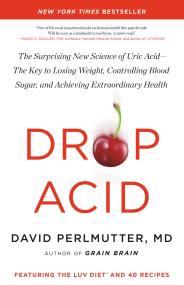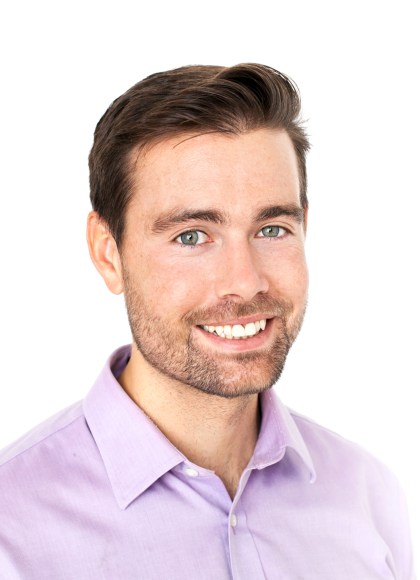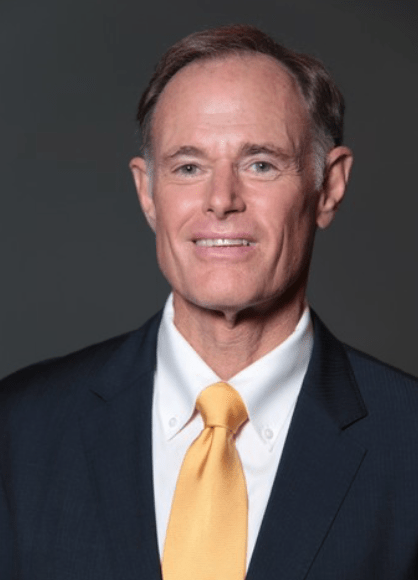Promotion
Use code MOM24 for 20% off site wide + free shipping over $45
Brain Wash
Detox Your Mind for Clearer Thinking, Deeper Relationships, and Lasting Happiness
Contributors
Formats and Prices
Price
$30.00Price
$38.00 CADFormat
Format:
- Hardcover (Large Print) $30.00 $38.00 CAD
- ebook $14.99 $18.99 CAD
- Hardcover $28.00 $35.00 CAD
- Audiobook Download (Unabridged)
This item is a preorder. Your payment method will be charged immediately, and the product is expected to ship on or around January 14, 2020. This date is subject to change due to shipping delays beyond our control.
Also available from:
Fight back against a modern culture that is rewiring our brains and damaging our health with this practical, doctor-approved plan for healing that includes a ten-day boot camp and forty delicious recipes.
Contemporary life provides us with infinite opportunities, along with endless temptations. We can eat whatever we want, whenever we want. We can immerse ourselves in the vast, enticing world of digital media. We can buy goods and services for rapid delivery with our fingertips or voice commands. But living in this 24/7 hyper-reality poses serious risks to our physical and mental states, our connections to others, and even to the world at large.
Brain Wash builds from a simple premise: Our brains are being gravely manipulated, resulting in behaviors that leave us more lonely, anxious, depressed, distrustful, illness-prone, and overweight than ever before.
Based on the latest science, the book identifies the mental hijacking that undermines each and every one of us, and presents the tools necessary to think more clearly, make better decisions, strengthen bonds with others, and develop healthier habits. Featuring a 10-day bootcamp program, including a meal plan and 40 delicious original recipes, Brain Wash is the key to cultivating a more purposeful and fulfilling life.
Genre:
-
"Brain Wash provides the tools for each of us to live a happier, more contented life. Drs. David and Austin Perlmutter engage our most current understanding of neuroscience to reveal how the brain can be functionally reconfigured to distance ourselves from pervasive negativity and welcome empathy and compassion back into our lives. The choices we make each day in terms of what we eat, how well we sleep, and even how we interact with our digital world all contribute to our worldview. And central to the Brain Wash mission is maximizing these and other choices towards seeing and creating a better world."Dr. Rudolph Tanzi, Professor of Neurology, Harvard Medical School, and author of The Healing Self
-
"We all know what it's like to feel distracted and overwhelmed. Brain Wash is an invaluable guide that's crammed with solutions for helping us to restore our focus, energize our bodies, and refresh our minds."Gretchen Rubin, author of The Four Tendencies and The Happiness Project
-
"Brain Wash shows us how our ability to make the best decisions is literally being hijacked every day. But more importantly, Drs. David and Austin Perlmutter empower the reader with the tools to regain control over our decision-making and implement strategies to allow health, empathy and happiness to manifest. Brain Wash brings a healthy dose of compassion to the world."Dr. Josh Axe, bestselling author of Keto Diet
-
"Inflammation, enhanced by so many influences of our modern world, dramatically reduces our ability to make good decisions and feel content. Brain Wash not only explores how this is happening, on a global scale, but also shows what we can do right now to take back control. From spending time in nature to choosing to consume one plant-based meal a day, Brain Wash provides the tools the reclaim and rebuild your brain's ability to make better choices and allow health and happiness to flourish."Mark Hyman, MD, #1 New York Times-bestselling author of Food and director of the Cleveland Clinic Center for Functional Medicine
-
"What if there was nothing wrong with you, and so much wrong with the ways in which our dominant culture hijacks your decision-making? You'd want to know how to reclaim your mind, your biology, and your sense of balance. Brain Wash feels, at once, like a sympathetic recognition of our modern day struggle with tech and a science-paved path back home to ourselves. This is one of the most important topics of our time, and Drs. David and Austin Perlmutter have compassionately, intelligently, and creatively opened a vital dialogue."Kelly Brogan, MD, author of Own Your Self
-
"This book was a total surprise. A father and son representing entirely different generations arrive at the same conclusion: that wellness fosters connection and this creates a meaningful life. Beautifully scripted and a bit like an adventure story, I kept wanting to get to the 'final message' of how being well makes us more loving and lovable. This is the endpoint where well-being takes us, and this is especially critical in our disconnected digital age with its constant distractions. Do yourself a favor and get this book"John Ratey, MD, Harvard Medical School, author of Spark
-
"In a world where most of us are feeling rushed, tired, and burned out, Brain Wash reveals how even small changes in your lifestyle choices can dramatically improve your day, your mood, and even your life."Melissa Hartwig Urban, Whole30 Co-Founder and CEO
-
"Brain Wash presents a road map for the relationship between how we think, feel, and behave and our lifestyle and environment. It is an artful and compelling manifesto on how to improve our mood, mind, and memory."Jeffrey Bland, PhD, founder of the Institute for Functional Medicine and president and founder of Personalized Lifestyle Medicine Institute
-
"The message of Brain Wash couldn't be more urgent or timely. If everyone followed its advice, the world would be a happier and healthier place."Catherine Price, author of How to Break Up with Your Phone and founder of Screen/Life Balance (screenlifebalance.com)
-
"Brain Wash is an important book that tackles a colossal modern challenge: the quest to reclaim our health and happiness from a world that encourages us to overspend, overindulge, and underthink. David and Austin Perlmutter are consummate guides who share a multitude of approachable, concrete, and down-to-earth solutions. Highly recommended."Adam Alter, author of Irresistible and Drunk Tank Pink
-
"By showing us how to consciously rewire our brains for connection, compassion, and better decisions, Brain Wash provides a framework for reclaiming joy and health in the modern world."Deepak Chopra, author of Metahuman
-
"Brain Wash reveals how our day-to-day decisions are deeply influenced and actively manipulated by the modern world. But more importantly, it is a powerful manual that allows each of us to reclaim control of our choices and make better decisions that will pave the way for health and happiness. While we generally know what's best for ourselves, acting on this knowledge is a constant struggle. Brain Wash allows us to turn this knowledge into action. I highly recommend this innovative book."Daniel G. Amen, MD, founder, Amen Clinics and author of The End of Mental Illness
- On Sale
- Jan 14, 2020
- Page Count
- 400 pages
- Publisher
- Little Brown Spark
- ISBN-13
- 9780316426398
Newsletter Signup
By clicking ‘Sign Up,’ I acknowledge that I have read and agree to Hachette Book Group’s Privacy Policy and Terms of Use
